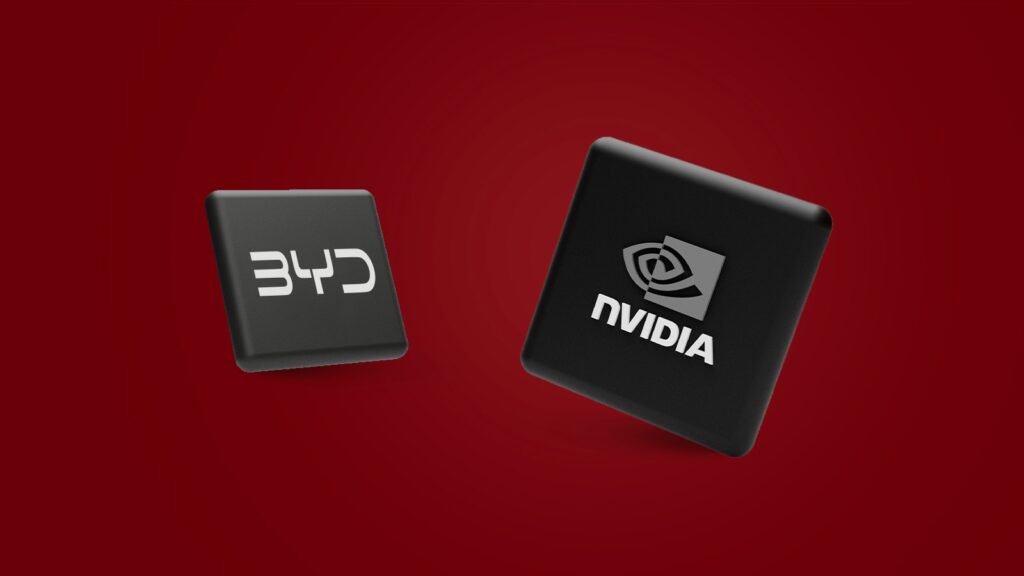On Monday, Nvidia revealed a significant expansion of its partnership with top Chinese electric car manufacturers, such as BYD, focusing on advancing autonomous AI-driven vehicles.
This collaboration strengthens Nvidia’s ties with the Chinese electric vehicle sector, despite facing restrictions from the United States on exporting its most advanced AI hardware to China.
BYD, which surpassed Tesla in sales in the final quarter of 2023, joins other Chinese automakers in adopting Nvidia’s DRIVE Thor. This comprehensive vehicle control system incorporates robust generative AI capabilities.
“At today’s developers conference, we’re excited to announce that BYD, the world’s largest EV company, will be integrating our next-generation AV computer,” stated Nvidia CEO Jensen Huang.
Nvidia further revealed that other prominent Chinese electric vehicle companies, such as XPeng, Li Auto, ZEEKR, and GAC Aion, have also embraced the Thor platform, initially introduced in 2022.
“DRIVE Thor is set to transform the automotive industry, introducing an era where generative AI shapes the driving journey,” Nvidia added in a statement.
BYD will additionally leverage Nvidia’s infrastructure for “cloud-based AI development and training technologies,” the company announced.
Nvidia anticipates the deployment of Thor for production vehicles as soon as 2025.
Despite its exponential growth driven by the AI boom catalyzed by the achievements of OpenAI’s ChatGPT, Nvidia is restricted from supplying its most advanced chips to Chinese firms under US regulations.
Washington has defended these restrictions, asserting that they aim to hinder China’s military and security agencies from accessing technology that could facilitate the development of advanced military equipment and applications, including AI.
China, on the other hand, has strongly criticized these limitations as “bullying” and “technological terrorism.”
In previous statements to US media outlets, Danny Shapiro, Nvidia’s vice president for automotive, has suggested that customers in the automotive sector are not impacted by these restrictions.
Nvidia reportedly has concerns in Beijing regarding the extensive partnerships between Chinese EV firms and US technology providers.
According to Bloomberg News, the Chinese Ministry of Industry and Information Technology (MIIT) has reportedly “quietly asked” automotive companies like BYD to increase their procurement from domestic chip manufacturers, aiming to reduce their reliance on foreign suppliers.


